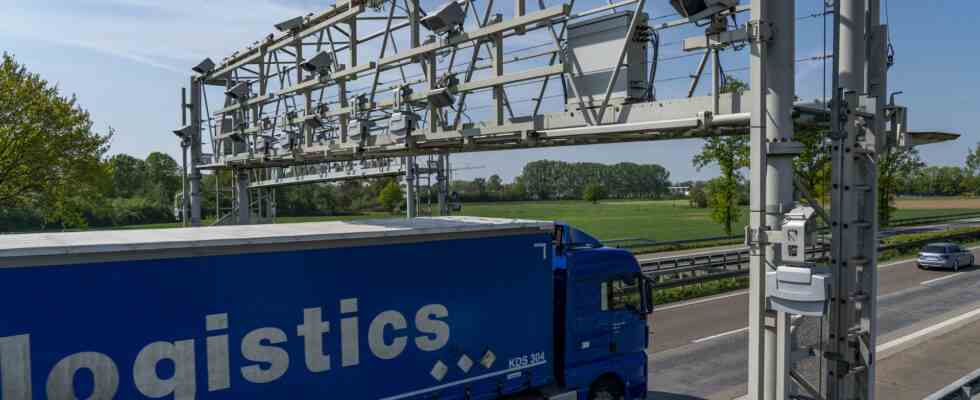Status: 04/21/2022 12:35 p.m
The truck toll in Germany is set to increase in the coming year. The state should bring billions in revenue. However, the increase in fees is not undisputed.
The truck toll fees in Germany are set to increase at the beginning of 2023. This emerges from a draft by the Federal Ministry of Transport to amend the Federal Highway Toll Act, which was available to the dpa news agency. The amount by which the fees are to be increased was not initially known.
The truck toll is a user fee that heavy commercial vehicles with a total weight of 7.5 tons or more have to pay on motorways and federal roads. It was introduced in 2005 and initially applied to motorways. Last year, the state was able to collect around 7.6 billion euros, which are invested in the maintenance and expansion of the transport network in Germany.
Costs could be passed on to customers
In addition to the implementation of new EU regulations, the background to the increase in fees is a new road cost report, which serves as the basis for determining the toll. This quantifies the costs that will be incurred in the coming years for the expansion and maintenance of the road network in Germany and gives a guideline for toll income.
According to the draft law, the annual average of toll revenue in the years 2023 to 2027 should be around 8.3 billion euros. The Ministry of Transport expects that these rising costs will be passed on by the carriers to the customers: The draft states that the increased transport costs could indirectly lead to higher prices for the transported goods.
CO2 differentiation is not included
The draft law does not contain a requirement from the coalition agreement between the SPD, the Greens and the FDP. It says: “In 2023 we will carry out a CO2 differentiation of the truck toll, include commercial goods transport from 3.5 tons and introduce a CO2 surcharge, on condition that double charging by the CO2 price is ruled out.” These measures required a “longer lead time for the technical and organizational implementation” and would therefore be regulated with a separate amending law, according to the draft from the Ministry of Federal Transport Minister Volker Wissing (FDP).
Peter Westenberger, Managing Director of the European Railway Network, criticized the proposal: “With this design, Wissing’s house falls far short and also goes in the wrong direction.” Instead of redesigning the toll in terms of modal shift, the ministry wants to get more money for further highway construction. The coalition agreement also does not include the toll exemption for trucks in the so-called pre- and post-carriage of rail transport: “Rail, on the other hand, has to pay fees for every meter. This unequal treatment must come to an end.”

